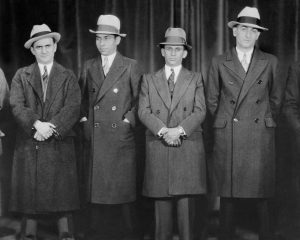 Recruitment is defined by BusinessDictionary.com as: The process of finding and hiring the best-qualified candidate for a job opening; it includes analyzing the requirements of a job, attracting employees to that job, screening and selecting applicants, hiring, and integrating the new employee to the organization.
Recruitment is defined by BusinessDictionary.com as: The process of finding and hiring the best-qualified candidate for a job opening; it includes analyzing the requirements of a job, attracting employees to that job, screening and selecting applicants, hiring, and integrating the new employee to the organization.
For us, more simply, that means getting the right person in the right job at the right conditions for both them and us, then managing them – and isn’t easy.
I first took on teachers and reception staff within a year of starting Modern English in 1998. I had ideas about what I wanted in my staff, set conditions and asked questions I thought would deliver these. I paid above market rates for teachers, the logic being that good teachers would only work for good money. And I wanted interesting people, so I asked interviewees to tell a funny story or a joke. Not only could most people not do this, it turned out that those looking for higher rates of pay were in it largely for the money, and if something better turned up, they’d be off.
I spent a lot of my early time recruiting sitting there asking questions to try and find out why I should employ someone. I then went through a stage of asking questions to find out why I shouldn’t employ someone.
These days, we approach things differently. Qualifications and experience are great but can’t guarantee the person will be right. We look at their background, their interests outside of work, and ask them what they like to do as well as teaching. While finding out what they can offer us, we try to see what we can offer them.
Creativity, adaptability, friendliness, reliability, the ability to get along with people of all ages and backgrounds – these are the traits we look for in all our staff.
In our training manuals, we list characteristics students report as being welcome in teachers. We then point out the list mentions nothing about teaching, but is all about the personality and demeanour of the teacher; and this is a benchmark we use in recruiting. It is a given that teachers are qualified and can teach, know the language, are able to explain it and have patience – but what are they like as people?
Teachers employed to date have also worked for us as writers, editors, managers, systems designers, illustrators, designers, musicians, actors, copywriters and marketers and contributed to the company outside the classroom. It is important to give people some sense of ownership or belief in what they do. This could be financial, in the form of bonuses, shares or royalties on work they produce, but doesn’t have to be. Salespeople are largely born, not created, and schools may fare better finding someone who loves working with people and seeing them reach their goals. Working hard to see students succeed may be sufficient reward.
Without fail, we always ask a teacher to do a short demo lesson. We can train them in our preferred approach, but here we can see how they react to a student, and vice versa. We always follow up on references (and it amazes me how many people do not) and have a set list of questions to ask referees. Many of these questions have nothing to do with teaching, but are about reliability, congeniality and trust. It is easy to bottom-line these questions to the owner of a similar type of organisation. ‘If your profit margin was dependent on employing this person again, would you do it?’
There is a lot of advice on this site, and we’ve also had luck recruiting from there: https://jobsinjapan.com/
